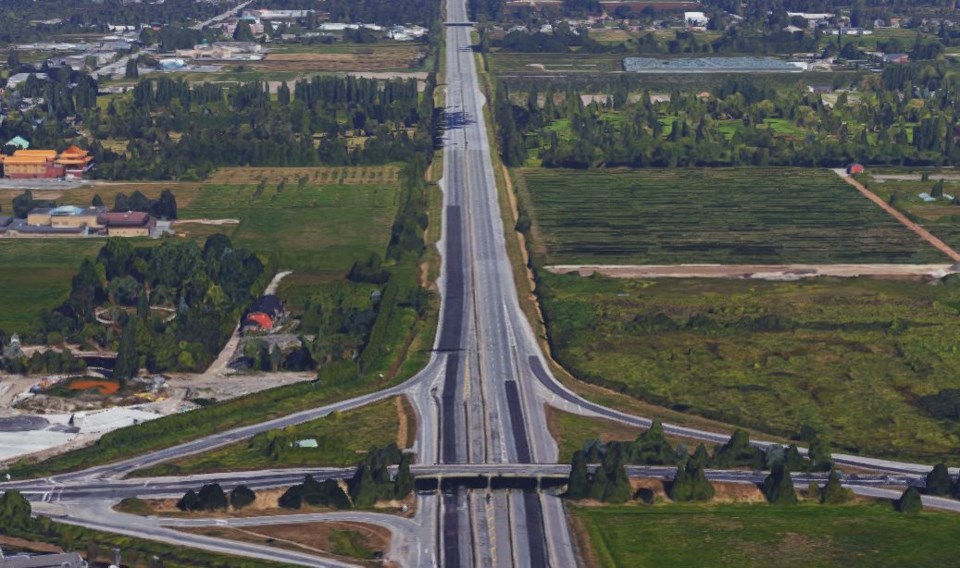Those concerned about the impact of unaffordable housing in Richmond should consider the ramifications of a planned 10-lane replacement bridge for the George Massey Tunnel, said Coun. Alexa Loo at a city council meeting Monday.
Responding to criticisms made by most other councillors concerning the bridge, Loo said the $3.5 billion span will support port activity and “seems to me there are about 11,000 of those jobs in Richmond. Those are good union jobs. That’s one way to get affordable housing — is to have a job to be able to afford a house.”
Loo said, despite the environmental concerns many bridge critics have raised, she supports local farmers as well and since Richmond’s cranberry exports don’t “fly on brooms,” it’s important to keep goods moving to the U.S.border.
Councillors made their rounds speaking to a new report from City of Richmond planners that cites concerns the bridge and Highway 99 widening will destroy farmland along No. 5 Road and eat into The Gardens agricultural park.
Loo and Coun. Ken Johnston are the only councillors who support the bridge and tunnel removal. However, both agreed with the report, which recommends a letter be sent to the Agricultural Land Commission citing the city’s concerns about the location of the highway widening.
Loo’s comments were similar to those made by the Richmond Chamber of Commerce to media earlier this month.
Furthermore, the chamber argues that the bridge falls in line with Metro Vancouver’s regional growth strategy, despite the fact Metro Vancouver says it doesn’t.
Mayor Malcolm Brodie, while not disagreeing jobs are important, was quick to reply to Loo’s comments and dismissed the chamber’s assertion.
“Why would this council and almost every other council and mayor and Metro Vancouver board member resent and oppose a project that will bring $3.5 billion, in terms of a project, into Richmond?” asked Brodie, who went on to say the bridge will increase demand for single-occupancy vehicles and facilitate urban sprawl south of the Fraser River — two key elements the regional growth strategy is attempting to avoid.
Johnston said the bridge is a done deal and it’s time to move on to managing the project in a way that best suits the city, whereas Brodie replied saying it’s not done just yet.
“This whole project is fraught with difficulty and while I’m a realist and a pragmatist, I am not prepared to say this project is in the books. It’s an ill-thought-out project,” said Brodie, repeating concerns that the bridge plan was moved ahead at the request of Port of Vancouver.
However, if Johnston’s assumption is right, the key concern for the city at this point, according to the report, is the loss of farmland along No. 5 Road and the impact on the park.
Coun. Harold Steves said the city plans on investing millions of dollars in services for farming the land.
Coun. Carol Day suggested the city force the provincial government to legally expropriate the land.
Brodie, a lawyer, wasn’t expressly opposed to the concept but said he didn’t think there would be much support from the religious groups that own the No. 5 Road “backlands” to join in a collective effort, considering many will be getting paid to get rid of a “headache” While the city attempts to enforce farming on the back third of the properties much of the land is unfarmed.
If need be, councillors want to see the highway widening take place on the east side, as opposed to along the backlands.
“Hopefully this will be a talking point and negotiation we can actually win,” said Coun. Derek Dang.



.jpg;w=120;h=80;mode=crop)